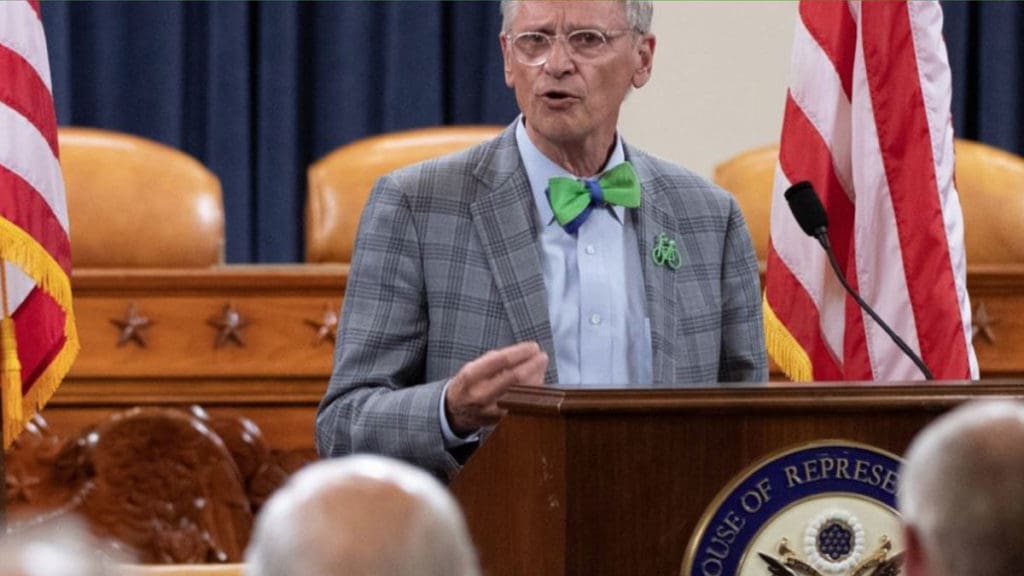New Bill Could Mean Massive Growth in Bike and Scooter Share

Washington DC / USA
With the change of government in the USA all micromobility advocate eyes have been upon the new administration including Transportation Secretary Pete Buttigieg.
But the first major step of what advocates hope will be many positive steps towards growing all forms of active transportation and micromobility has come from a much older hand.
Congressmen Earl Blumenauer, aged 72, from cycling stronghold Portland Oregon has been an outspoken advocate for cycling in particular for all of his 24 years in the Congress.
He’s renowned for his trademark bow ties and plastic bicycle lapel broaches, which he even wears for his official photographs.
In late January, Blumenauer introduced a bill called the Bikeshare Transit Act. This would amend federal code to include micromobility projects under the umbrella of transit improvements that may get US Department of Transport (DOT) funding.
“COVID-19 has only increased the popularity of bicycle commuting and bikeshare systems as people seek safe transportation options. Even when the pandemic ends, this demand for biking will remain,” Blumenauer said in a media release upon introducing the bills. “The federal government needs to catch up and finally provide the funding, flexibility, and incentives needed to strengthen bike culture and infrastructure.”
Federal funding could mean that the literally hundreds of other US cities large enough for a share system might more seriously consider one.
Until now, no federal funding has been allowed to go towards any bike or scooter share program. Despite this restriction, as the chart accompanying this story shows, total bike and scooter share ridership has grown strongly since the first USA system, Capital Bikeshare, was launched in 2010.
However during this time, many smaller city systems have come and gone due to lack of funding. Just six major cities: San Francisco, Boston, Chicago, Honolulu, New York, and Washington DC account for 87% of all share rides. All of these are relatively affluent cities with strong traditions of electing Democratic Party mayors and city officials who are more prepared to fund and support active transportation including share systems.
Federal funding could mean that the literally hundreds of other US cities large enough for a share system might more seriously consider one.
Blumenauer paired his micromobility legislation with a second bill, the Bicycle Commuter Act, which would reinstate a pre-tax commuter benefit for cyclists that the Republican-lead house axed in 2017 and expand it to cover bikeshare benefits. However, scooter-share was not included in that bill.
Advocates believe both bills will progress in the Democrats’ impending infrastructure package.
“Bike share systems expand cities’ transit networks and make short and last-mile trips — the majority of trips in cities — convenient and accessible,” said Alex Engel, spokesperson for the National Association of City Transportation Officials. “The most successful bike share programs are planned hand-in-hand between cities and operators, and cities will benefit from exploring all possibilities for building and expanding these crucial mobility systems. Making bike share eligible as a pre-tax benefit is a no-brainer move to make this convenient and sustainable option easier to access for more people.”
Although the new bills would only provide funding within the USA, they would potentially provide a massive boost to the leading USA based share system providers such as Lime, Spin, Bird, Motivate and others, which could then enable them to expand their global operations.
Part of this story was first published on Streetsblog USA.
